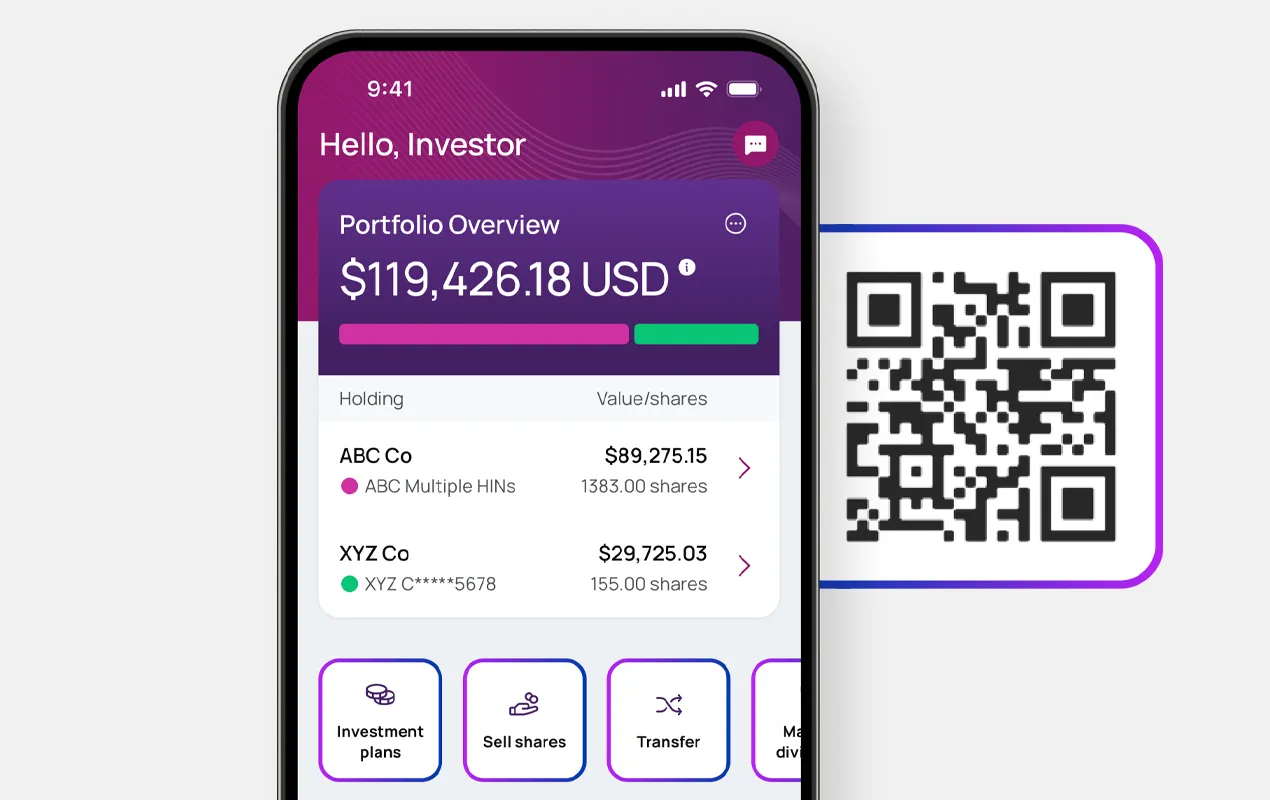Don't let your money disappear – act now!
Every state has unclaimed property laws. If your account becomes inactive, or you haven't contacted Computershare for an extended period of time (generally three to five years), your shares may be classified as unclaimed property and transferred to the state through a legal process called escheatment.
Ways to register account activity
To maintain ownership of your shares, you must take action to show your account is active. This can be done by selecting one of the links below and following the instructions to access your account:
Login to Investor Center Update your address Replace a check
Frequently Asked Questions
The easiest way to protect your shares from being classified as unclaimed is to ensure you maintain regular contact with Computershare. This can be done by:
Logging into Investor Center
Cashing a check no matter how small the amount
Voting a proxy
Updating address and contact information
Buying or selling shares
Calling Computershare
This will automatically update your “last contact date” with Computershare and reset the inactivity period on your account.
Computershare will always attempt to contact a shareholder if their shares are at risk of being classified as unclaimed. For this reason, it is important to update Computershare if your address or contact information changes. This ensures Computershare can contact you about your account if needed.
We’re here to help! If you receive a letter from Computershare notifying you that your assets may be transferred to the state, it's important to follow the instructions in the letter within 45 days.
You must call Computershare as soon as possible at the phone number listed on the back of your unclaimed property notice. Please call within 45 days of the date of the notice or the shares/funds will be in jeopardy of being transferred to the custody of the state. Speak with a representative or use our automated telephone system (24 hours a day, 7 days a week) to request a deceased transfer package. Note that the account may contain uncashed checks which should be re-issued. Have the notice available to identify the account when you call. For more information on deceased shareholder accounts, click here.
Contact your state’s Unclaimed Property Division to place a claim. If your property includes shares of stock, it may have been liquidated by the state. Once property has been delivered to certain states, all interest, dividends, income, and gain remain with the state, even if the owner reclaims the property.
Visit the National Association of Unclaimed Property Administrators (NAUPA) website to learn more about your state’s unclaimed property program.
Please add banking instructions on your account in order to have your accrued payments issued.
Some states do not consider your receipt of a statement or the direct deposit of dividend funds as shareholder initiated “activity” or “contact”.
There is no fee if you have direct deposit instructions on file for your account to receive the payment electronically. Some companies may charge a fee to reissue printed checks in the amount of 10% of the value of each replacement check, up to a maximum of $20. To have this fee waived, add your banking details first, prior to requesting your replacement check. To replace a lost check, click here.

Acting now keeps your account active and protects your property
Every year millions of dollars in financial assets are turned over to US states as unclaimed property through a process known as escheatment.
Watch this video to learn how to keep your shareholder accounts active.
More resources
Keep what’s yours: unclaimed property video series

Nine tips to protect your assets from being escheated



